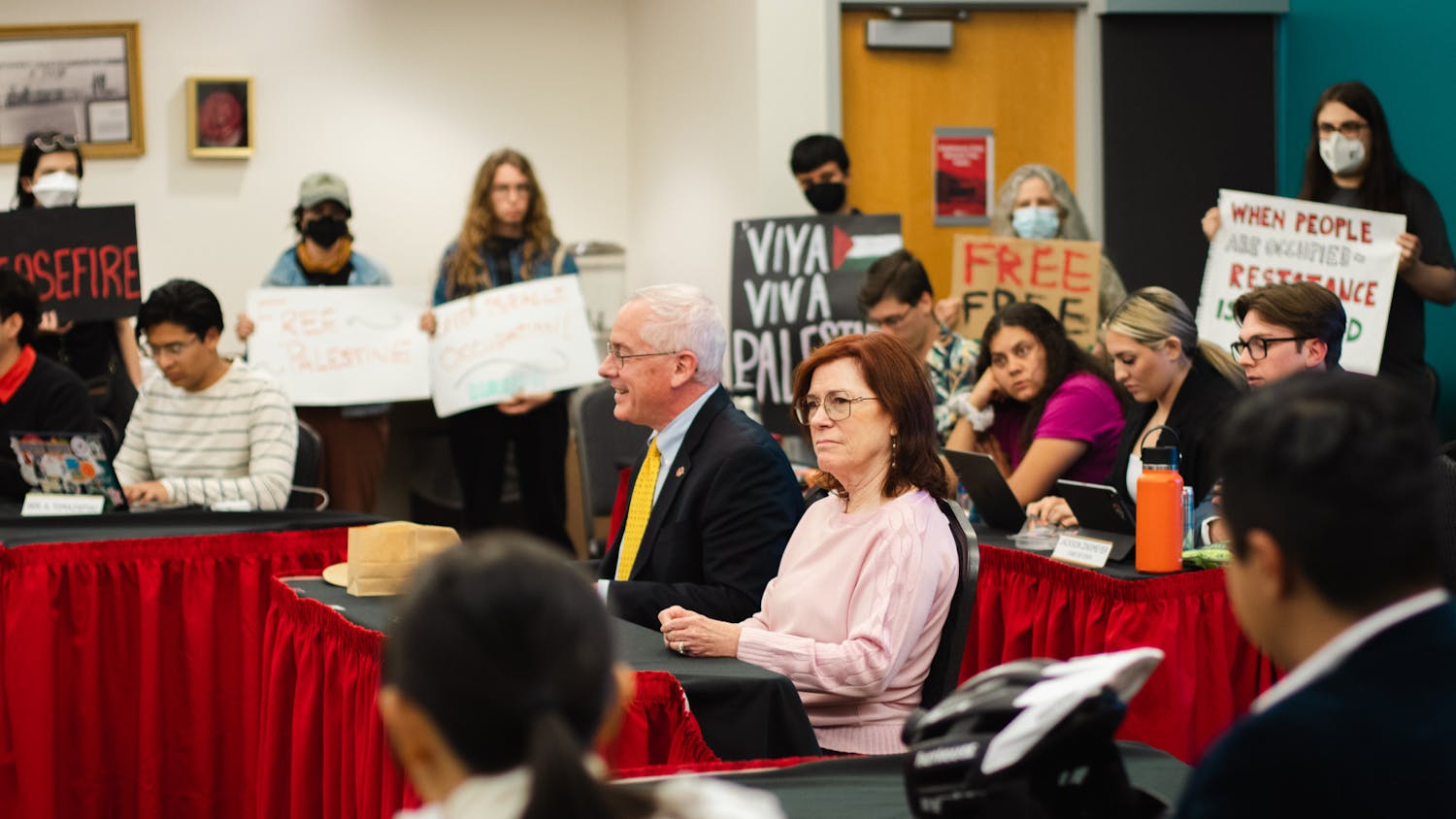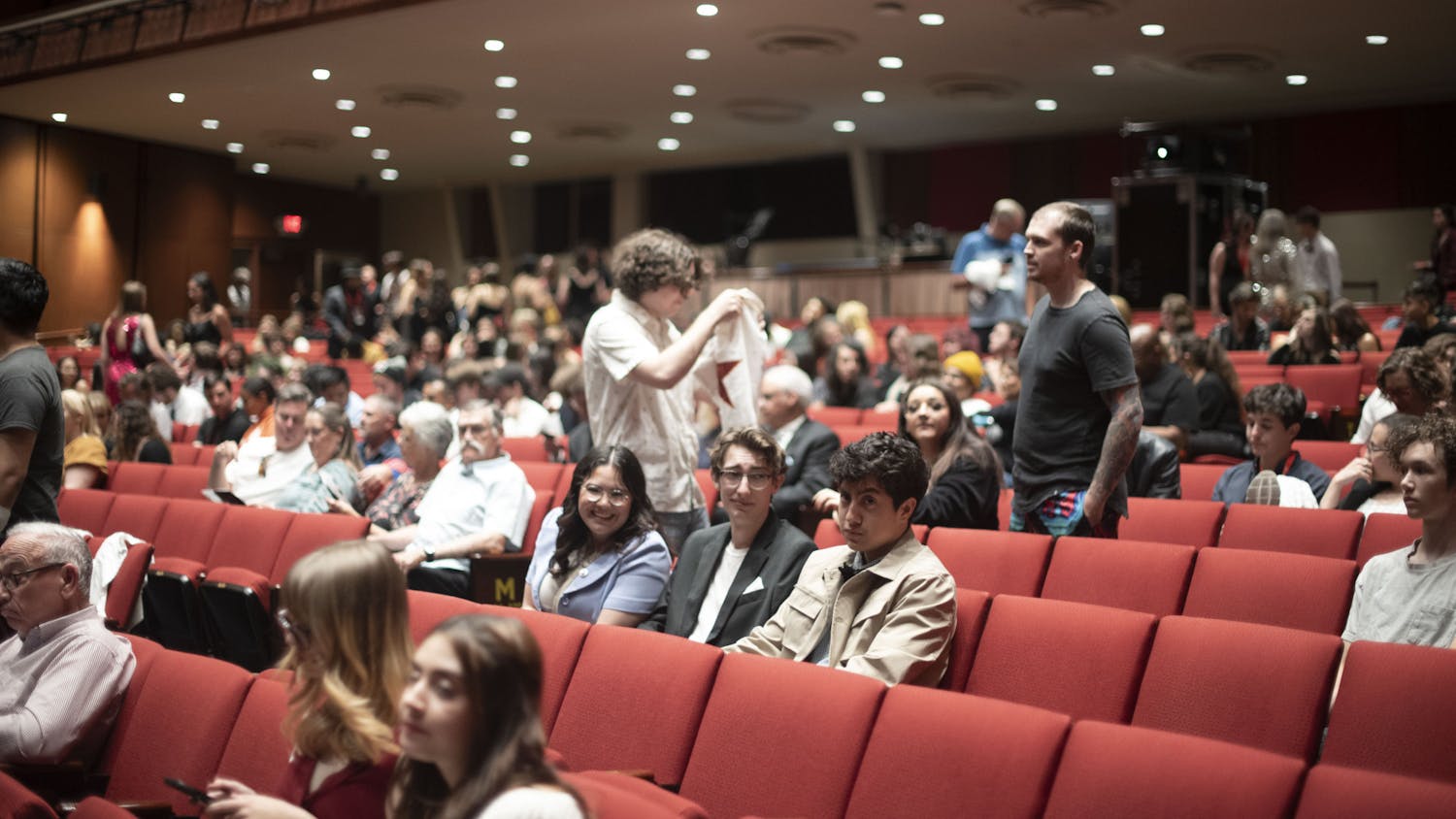When Dr. Bruce Smith began teaching his Positive Psychology course in 2005 on a bi-annual basis, only about 30 people were enrolled. It wasn’t until 2011 that he began teaching the course every semester, and class sizes quickly grew closer to 200 students.
The class was a hit, Smith said, and the numbers showed it.
“People who had the class wanted to have another class,” he said, the high demand from students eventually resulting in the development of a Positive Psychology-themed lab and the installation of a curriculum.
Smith said the course's discourse deals with “trying to combine learning the best of what we know from psychology and science to enable people to live a happy, fulfilling, meaningful life."
"Psychology, science is finally focusing in on that," he said.
A class that takes a scientific approach to finding the meaning of life exists to teach people and also give them the opportunity to try it out for themselves through conducting individual experiments.
For most of us, life is a story we tell ourselves one day at a time and Smith believes all the great stories have common themes, "like Harry Potter, Star Wars.” He said the reason for people’s universal appeal to these narratives of a hero’s journey is that on some level of consciousness "those stories are about us."
“Our own hero’s journey might be ‘How do we get through UNM?’ ‘How do we find the kind of relationship that’s satisfying to us?’ ‘How do we recover from abuse, or trauma, or depression?’” Smith said.
The class focuses on providing students with tools that encourage the personal relevance of their psychological well-being, individual well-being that can then be seen as a catalyst for the development of community involvement, he said.
“You learn about what’s good for other people, and all people,” Smith said, “but hopefully it’s also relevant to your own life.”
Nowadays it’s become a popular trend, almost a stereotype, to see the worst of humanity in the headlines, Smith said. Because of this, Tiffany Miner, a graduate student in the Family Studies program, said discovering the positive environment generated in the class was a "culture shock."
“I came here and I felt like every other focus was on negativity,” she said. "It is becoming increasingly difficult to tell ourselves our own stories in positive terms because of all these looming dark clouds."
Get content from The Daily Lobo delivered to your inbox
In its origins, the focus of psychology had always been on trying to keep people from being depressed, or on abnormal psychology, Smith said.
He said it wasn’t until around the turn of the 21st century, when a prominent psychologist starting thinking about ways to encourage the practice of really utilizing one's strengths.
This psychological paradigm shift from dark to light, so to speak, is one of the most important aspects of the class, said Julia Anderson, a graduate student studying psychology.
“To looking at the beneficial aspects of it, and how important it is to measure those scientifically,” she said.
Anderson said critiques of Positive Psychology are often to the tune of of overestimating the power of positive thinking, or encouraging white privilege.
“I have found that those are not necessarily reflective of the research community and what is really being done,” Anderson said. ”Things like looking at how to use positive emotions to increase wellness behaviors like organ donations, and asking for help if you’re suicidal (and) depressed, and volunteering in meaningful ways.”
She said that it isn't enough to leave the prospects of studying well-being to religion or self-help literature; we should find out how to cater to each person's sense of self-worth in their own way.
“We have Los Alamos (labs) nearby, we went to the moon, we’ve invented the (atomic) bomb, but we can put the same efforts and resources and scientific rigor towards ‘How do we become better people? How do we build a better community?'" she said. "I think we’re starting to do that.”





